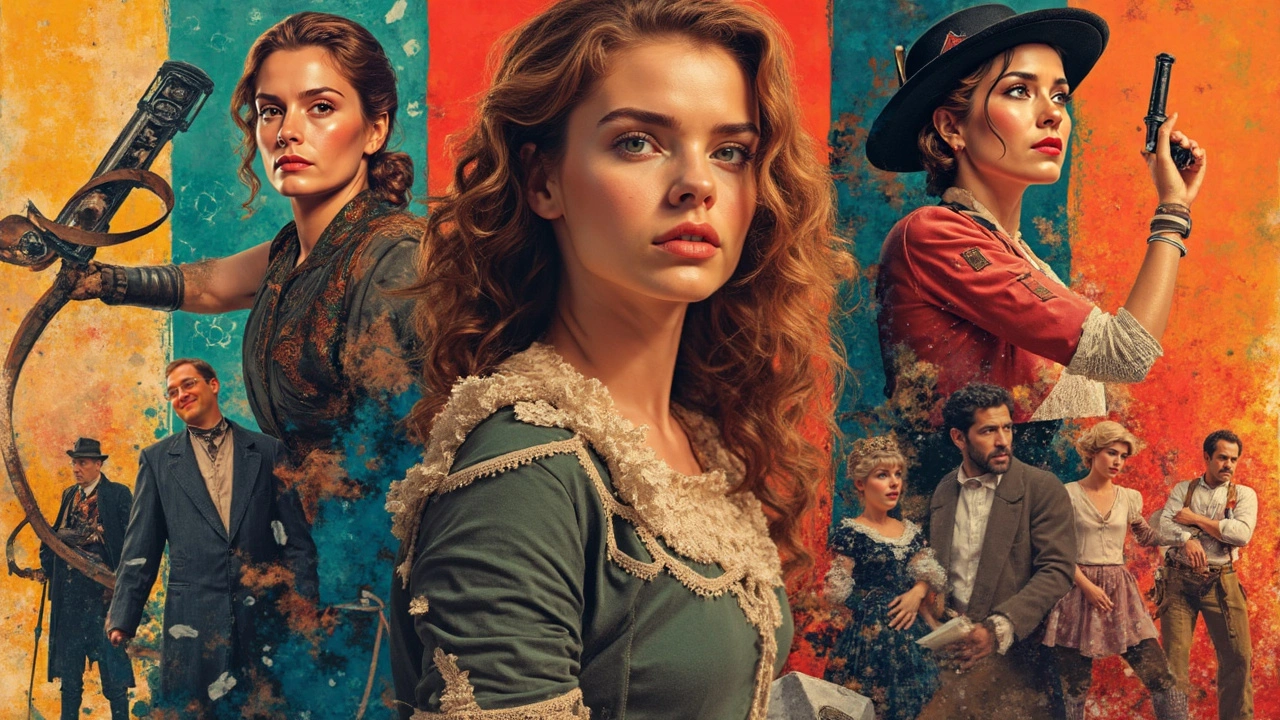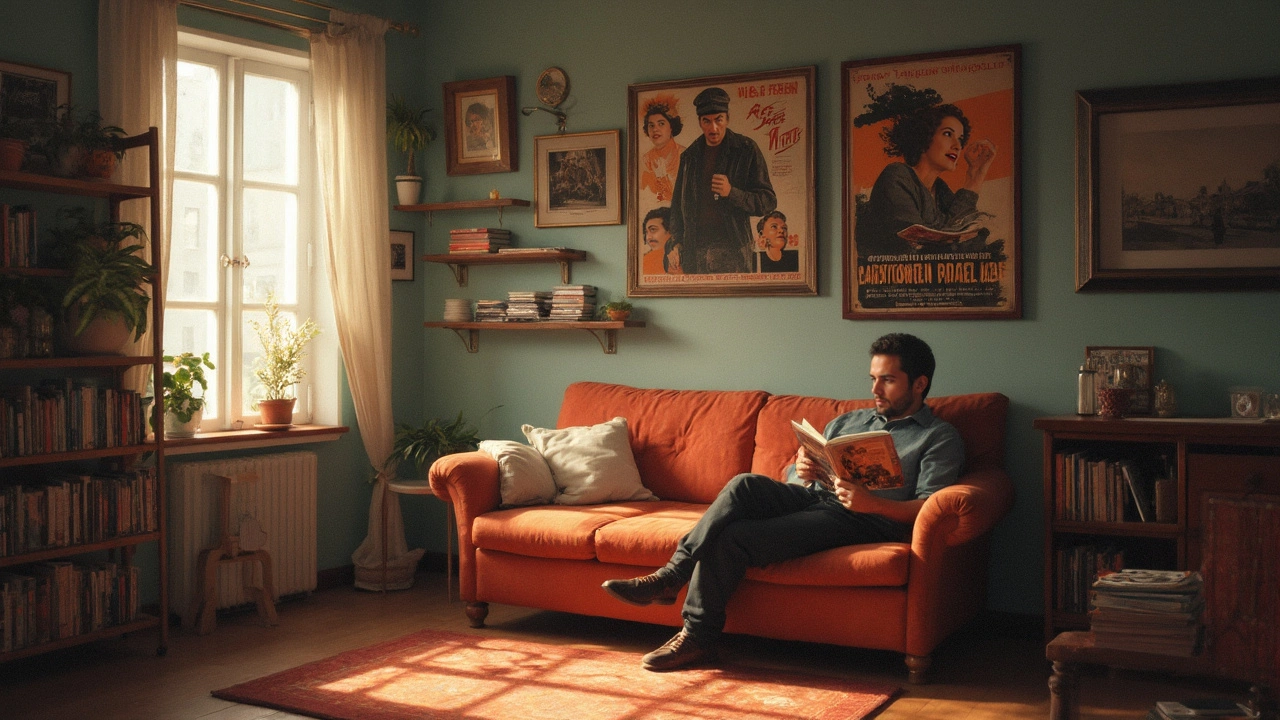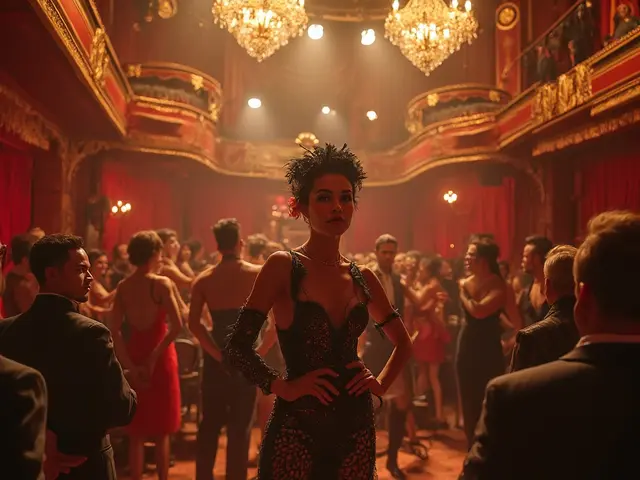If you've ever switched on a German film or tuned into international productions, odds are you've seen Veronica Ferres. Not only is she everywhere in German cinema, but she's also made a name for herself beyond Germany’s borders. Her story isn’t one of overnight fame. She built her career step by step, taking on challenging roles, working with famous directors, and bringing life to all kinds of characters.
Want to know why Veronica Ferres stands out? It’s her authenticity on screen. Whether she’s playing a hard-edged detective or a mom navigating tough times, you can’t help but believe her every move. She’s the kind of actress who isn’t afraid to tackle serious topics—think abuse, addiction, or social injustice—and she does it in a way that sticks with you.
- Snapshot of Her Career
- What Makes Veronica Ferres Unique
- Unforgettable Roles and Movies
- How to Discover More of Her Work
- Fun Facts and Lesser-Known Highlights
Snapshot of Her Career
For anyone looking for a quick rundown, Veronica Ferres didn’t just pop up in the movie world; she put in years of work. She started out on stage in the late 1980s after studying at Ludwig Maximilian University in Munich. Her serious acting chops got noticed fast, and it wasn’t long before she landed parts in German TV movies and shows—her first big splash came with the hit TV miniseries “The Manns – Novel of a Century” in 2001. That role instantly boosted her profile all over Germany.
Ferres really broke through with the film "Schtonk!" in 1992, a comedy about the Hitler Diaries hoax. That movie got an Oscar nomination for Best Foreign Language Film, putting both the movie and Ferres on the international radar. Since then, she’s racked up over 100 film and TV credits, working with top directors like Helmut Dietl and Werner Herzog. If you’ve heard of "Rossini," "The Superwife," or "Klimt," you’ve seen her in action.
One of the cool things about Ferres is her crossover success. Unlike many German stars who stick to German-language projects, she broke into Hollywood with roles in movies like “Hector and the Search for Happiness” (alongside Simon Pegg) and “Salt and Fire,” directed by Herzog. For a German actress, that kind of international reach is pretty rare.
| Year | Key Project | Role |
|---|---|---|
| 1992 | Schtonk! | Monica Saalfeld |
| 2001 | The Manns – Novel of a Century | Katia Mann |
| 2014 | Hector and the Search for Happiness | Clara |
| 2016 | Salt and Fire | Dr. Laura Sommerfeld |
She’s picked up plenty of hardware along the way—think Bavarian TV Awards, Golden Cameras, and the prestigious Bambi Award. It’s not just the big prizes, either. Ferres is known for grinding day in and day out, making her a reliable name for both audiences and directors. If you want to understand the evolution of Veronica Ferres—and why she’s such a force in German cinema—this is where it all starts.
What Makes Veronica Ferres Unique
You don’t become a star in German cinema by doing what everyone else does. Veronica Ferres made her name by picking roles that matter and by throwing herself right into the heart of every part. She’s not just a familiar face. She’s an actress who completely transforms, whether in comedies, heartbreaking dramas, or international thrillers.
One thing that really sets Ferres apart is her willingness to tackle tough, sometimes controversial topics head-on. In the 1995 film "Schtonk!" she grabbed attention with her comic timing, but in "The Woman from Checkpoint Charlie" she delivered a gut-punch of a performance about life under East German surveillance. She never shies away from difficult subjects—addiction, abuse, even political corruption. When you watch a movie featuring Veronica Ferres, you know you’re in for a story that’s as real as it gets.
Another thing fans notice right away: she doesn’t just stick to German projects. Over the years, Ferres has crossed into Hollywood, landing roles alongside stars like John Malkovich and Willem Dafoe in movies such as "Pay the Ghost." This makes her one of the rare German actress profiles seen regularly in both European cinema and English-language films.
Ferres is also well known for her work on TV, with lead roles in major German miniseries and TV movies that draw millions of viewers. She brings the same intensity and honesty to television as she does to the big screen, keeping her versatile and relevant year after year.
For people who like numbers, it’s cool to see just how broad her reach is:
| Film/TV Count | International Productions | Awards Won |
|---|---|---|
| Over 100 | 15+ | 30+ |
That’s the kind of career that doesn’t just happen. She chooses her projects carefully and always aims to break new ground. If you’re looking for an actress who mixes authenticity with guts and isn’t afraid to take risks, Veronica Ferres ticks every box.

Unforgettable Roles and Movies
If you want to understand why Veronica Ferres is such a household name in Germany, you have to look at some of her key films. Let’s talk about a few that really cemented her place in the industry.
Her big break came with “Schtonk!” in 1992. This satirical comedy about the Hitler diaries media scandal was nominated for an Oscar and even now, German film buffs still talk about her role as Freya. She managed to stand out even next to big comedic talents — not an easy feat for a rising actress.
Another classic: "The Superwife" (Die Superweib) from 1996. This film gave her a chance to lead, and she nailed the comic timing and heart necessary to win over audiences. If you want to see why so many viewers relate to her, this is a good one to start with.
She tackled heavy topics in “The Manns – Novel of a Century” (2001), playing Katia Mann. The miniseries was a hit, pulling in millions of viewers and netting awards across Europe. You could really feel the depth she brought to the character — it’s something critics still point out today.
But Veronica Ferres didn't just stick to German productions. She worked internationally with roles in “Klimt” alongside John Malkovich, and in “Pay the Ghost” with Nicolas Cage. These films proved she could hold her own on any set, not just in Germany.
Check this out: here’s a quick look at her most well-known films and how they fared at the box office or awards shows.
| Film | Year | Notable Fact |
|---|---|---|
| Schtonk! | 1992 | Oscar Nominee for Best Foreign Language Film |
| The Superwife | 1996 | Topped German cinema charts in 1996 |
| The Manns | 2001 | Won German Television Award |
| Klimt | 2006 | International co-production |
| Pay the Ghost | 2015 | Hollywood debut with Nicolas Cage |
One tip if you want to explore more of her work: don’t stop at the big blockbusters. Check out TV dramas and lesser-known crime series. She pops up in all kinds of roles, and every time, she brings something different to the screen.
How to Discover More of Her Work
Digging into Veronica Ferres’ career isn’t as tricky as it sounds. Her filmography is pretty vast, which makes it easy to dive in no matter where you live. If you want to check out Veronica Ferres films or learn more about this German actress, here's how to start:
- Streaming Platforms: You’ll find a bunch of her movies and series on major platforms. Netflix Germany has “Unter Bauern” (aka "Saviors in the Night"), a film where she plays a lead role based on a true WWII story. Amazon Prime Video sometimes rotates in her more recent films like "Salt and Fire" directed by Werner Herzog. Keep an eye out for the 2022 title “The Unforgivable” where Ferres starred alongside Sandra Bullock—that one pops up on Netflix globally.
- German TV Networks: If you’re in Germany or have access to German channels online, check out ARD and ZDF’s official media libraries. They frequently feature reruns of her classics, especially her earlier career hits.
- DVDs and Blu-rays: Some of her classics haven’t made it online but are easy to order as DVDs. “Rossini,” for example, is a German cult favorite and often available on disc. Local libraries or larger media stores in Germany usually carry a decent selection as well.
- Film Festivals: Certain European film fests, especially the Munich Film Festival or Berlinale, sometimes do retrospectives of classic German cinema and feature Ferres’ movies. These fests often stream selected films online during or after the event.
A cool tip: Searching her name on IMDB or the German site Filmportal.de gives you a neat checklist of almost everything she’s ever done—all organized by year and type. This way, you won’t miss her TV movies (where she’s just as strong as in her cinema work).
Ever wonder which of her films have reached the widest audience? Here are a few of her movies and TV shows, with original German titles, English translations, and release years so you know what to look for:
| German Title | English Title | Year |
|---|---|---|
| Schtonk! | Schtonk! | 1992 |
| Das Superweib | The Superwife | 1996 |
| Rossini | Rossini | 1997 |
| Salt and Fire | Salt and Fire | 2016 |
| Unter Bauern | Saviors in the Night | 2009 |
| The Unforgivable | The Unforgivable | 2022 |
For deeper dives, join online forums like Reddit’s r/Movies or German cinema Facebook groups. Lots of fans share streaming tips, viewing parties, and even rare interviews you won’t find anywhere else. It’s a great way to find out what everyone’s talking about—maybe you’ll discover a new favorite among Veronica Ferres films!

Fun Facts and Lesser-Known Highlights
Here’s where things get really interesting with Veronica Ferres. Did you know she almost became an academic before choosing acting? Ferres started out studying German literature, theater studies, and psychology at LMU Munich—she jokes that understanding Freud helped her with tough roles later on.
If you go through her film credits, you'll see she’s worked in multiple languages: German, English, and even French. That’s pretty rare for German actresses at her level. It opened doors to Hollywood, including starring alongside John Malkovich in "The Giacomo Variations" and Nicolas Cage in "Pay the Ghost." Not many from Germany get those kinds of calls.
Here’s a wild one: after starring in "The Superwife" (“Die Superweiber”) in 1996, she became a household name almost overnight. That one film made her Germany’s top-ranked cinema star in multiple popularity polls the next year. In fact, for three years running, she topped the "most successful German film actresses" chart in Bunte magazine.
When it comes to awards, her shelf is stacked. She’s got the Adolf Grimme Award, the German Television Award, and the Bavarian TV Award, just to name a few. Yet, behind the scenes, she’s passionate about charity work. Ferres has supported the "Power-Child" foundation, focusing on children’s rights, and she often speaks out about social issues, both in and out of character.
- Veronica Ferres was once married to film producer Martin Krug and is currently married to billionaire Carsten Maschmeyer, a well-known investor from “Die Höhle der Löwen”—the German "Shark Tank."
- She’s played real-life figures like Margarete Steiff, the creator of Steiff teddy bears, in a beloved biopic. If you spot those cuddly stuffed animals, now you know the movie connection!
- Not just an actress—Ferres has also produced films and TV projects, meaning she’s busy both in front of and behind the camera.
- She is a regular on the charity gala scene, often using her popularity to boost fundraising efforts—another reason she’s so well-known beyond just film audiences.
One more thing: Ferres is all about keeping her private life out of the tabloids. Despite being a German actress recognized across Europe, she somehow manages to balance career and family life away from the drama. That’s not something you see every day in showbiz.




